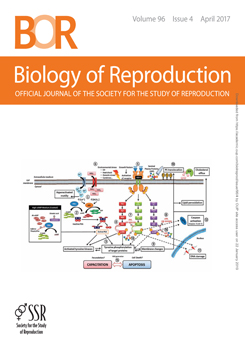The present studies were designed to determine whether progesterone (P4)-progesterone receptor membrane component 1 (PGRMC1) signaling is able to attenuate the apoptotic effects of oxidative stress induced by hydrogen peroxide (H2O2). To achieve this goal, freshly isolated human granulosa/ luteal cells were maintained in culture. After several passages, the cells were treated with H2O2, which induced apoptosis within 2.5 h, while simultaneous treatment with P4 attenuated the apoptotic action of H2O2. AG 205, a PGRMC1 antagonist, eliminated P4's ability to prevent H2O2-induced apoptosis. AG 205 neither affected PGRMC1's cytoplasmic localization nor its interaction with PGRMC2, but appeared to reduce its presence within the nucleus. AG 205 also (1) increased the monomeric and decreased the higher molecular weight forms of PGRMC1 (i.e., dimers/oligomers) and (2) altered the expression of several genes involved in apoptosis. The most dramatic change was an approximate 8-fold increase in Harakiri (Hrk) mRNA. However, AG 205 did not induce apoptosis in the absence of H2O2. Taken together, these observations suggest that the higher molecular weight forms of PGRMC1 likely account in part for PGRMC1's ability to suppress the expression of Hrk. Harakiri is a BH-3 only member of the B-cell lymphoma 2 (BCL2) family that promotes apoptosis by binding to and antagonizing the antiapoptotic action of BCL2- and BCL2-like proteins. It is likely then that PGRMC1's ability to suppress Hrk is part of the mechanism through which P4-PGRMC1 signaling preserves the viability of human granulosa/luteal cells.
Summary Sentence
The PGRMC1 antagonist, AG 205, blocks the ability of P4 to inhibit H2O2-induced apoptosis by disrupting PGRMC1 dimers/oligomers and inducing the expression of the apoptosis inducing BH3-only protein, Harakiri.





